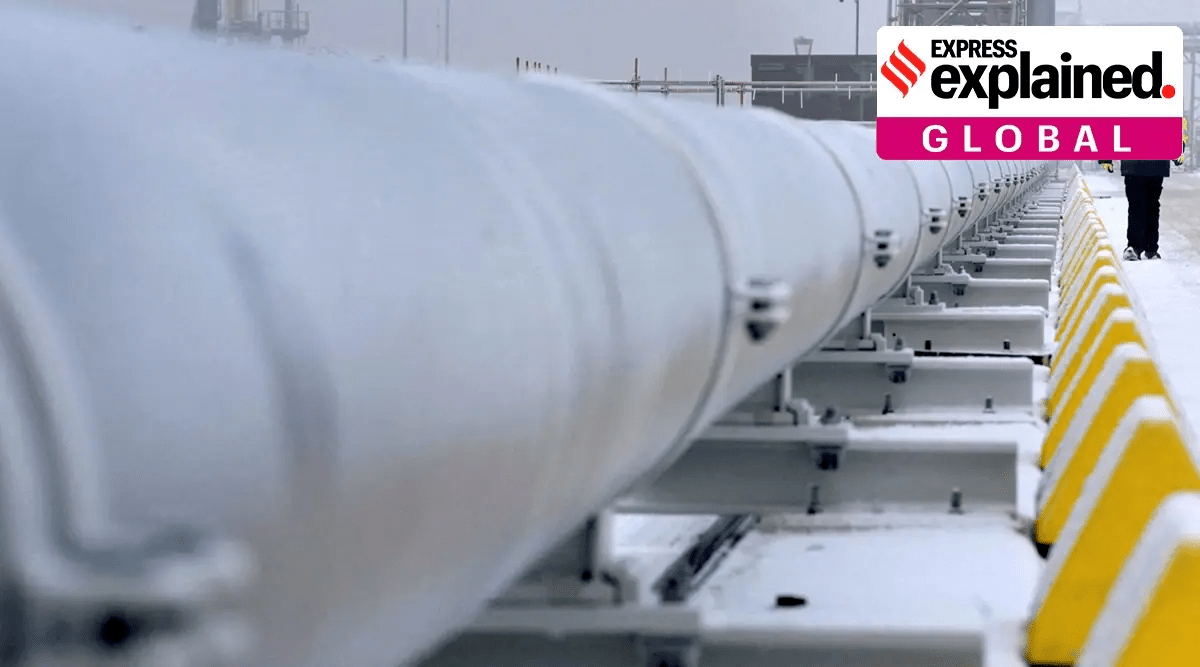NATURAL GAS TRADING IN EUROPE

Copyright infringement not intended
Context: European Union energy ministers have agreed a gas price cap to try to lower gas prices that have pushed energy bills higher and driven record-high inflation this year after Russia cut off most of its gas deliveries to Europe.
Details:
- Some market participants fear the cap, which would be triggered if prices exceed 180 euros per megawatt hour for three days on the Dutch Title Transfer Facility (TTF) gas hub’s front-month contract, could drive trading onto the over-the-counter (OTC) market.
- It could also reduce liquidity on European exchanges and disincentivise much needed liquefied gas exports to Europe from the United States and other regions.
- Trading happens on exchanges or OTC. Exchanges are more accessible to all market participants and provide transparency. They are also subject to financial and market regulations to prevent market abuse.
Hubs Versus Oil Indexation
- Over the last two decades, gas prices in Europe have moved towards hub pricing, where natural gas is priced on the basis of demand and supply, and away from oil indexation, which uses crude oil as a price indicator.
- Hub pricing accounted for 77% of gas volumes in 2021, according to a study by Oxera Consulting this month. In north-west Europe, hub pricing tends to dominate, while Mediterranean gas trading tends to use more oil indexation.
Trading Hubs
- There are around 30 gas trading hubs in Europe but not all are very active, according to the Oxford Institute for Energy Studies.
- The Dutch Title Transfer Facility and Britain’s National Balancing Point (NBP), are classed as the two most mature, meaning the most liquid and transparent.
- Other active hubs include the Italian Punto di Scambio Virtuale (PSV), Austrian hub Virtual Trading Point (VTP), Belgian hubs Zeebrugge Beach (ZEE) and ZTP, Spanish hub PVB, French hub Point Exchange Gaz (PEG) and Czech hub VOB.
- Last year, Germany launched a nationwide gas trading hub, Trading Hub Europe (THE), after merging its two existing hubs to boost liquidity and simplify administration.
- Previously Gaspool and NetConnect Germany (NCG) operated in separate regions, carving Germany into two gas markets. They renamed their order books to THE to continue spot and futures trading.
- There are also plans for more gas trading hubs in Eastern Europe and the Mediterranean, as well as Turkey.
- In 2019, volumes traded on the TTF accounted for 79% of total traded volumes in Europe. The TTF price is classed as the European gas price benchmark with LNG cargoes and other hubs pricing against it.
Derivatives
- There is no single price at the TTF or other gas hubs. There are different gas contracts – some for immediate or near-term delivery (known as the spot or prompt market) and some for hours, months, years or seasons ahead.
- There are several financial instruments used in gas markets, such as futures, forwards, options and swaps.
- Futures are agreements to buy or sell gas for delivery at the TTF at a certain future time for a pre-agreed price and are traded on exchanges.
- Forwards are also agreements to buy or sell TTF for delivery in the future but they tend to be bespoke agreements, are traded in OTC markets and are not formally classed as derivatives contracts under EU equity trading rules.
- Options give the holder a right but not the obligation to buy or sell the underlying TTF futures contract at a certain date for a certain price.
- Swaps are OTC financially-settled contracts that allow two parties to exchange payments related to the market gas price.
Over-The-Counter
- Trading in gas derivatives can occur on regulated markets or exchanges and OTC markets. These typically consist of a network of buyers and sellers and brokers that act as intermediaries in the trading activity.
- OTC trading can also take place bilaterally, whereby the counterparties have direct relationships with each other.
- But exchange trading takes place on a single centralised order book and where all buyers and sellers can interact with each other at the same time.
- This year, the share of exchange-executed trading on European gas hubs was around 62%, according to European Commission data.



.jpg)
.jpg)
1.png)
